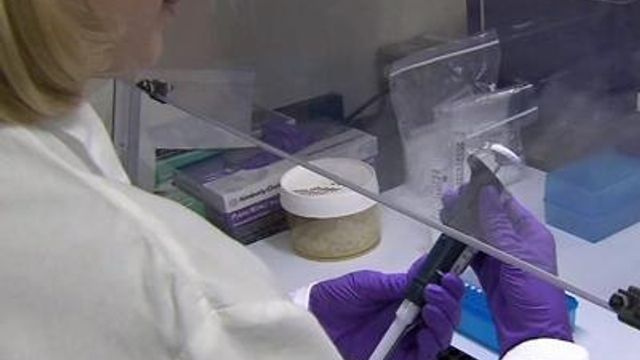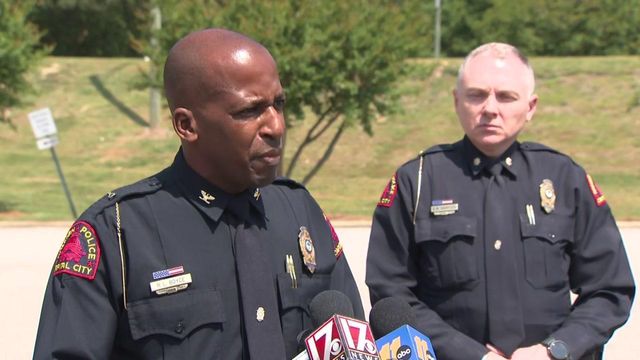DNA sample testing system expanded in new N.C. law
North Carolina's criminal DNA testing system will be expanded with Gov. Bev Perdue signing a bill Thursday that supporters say will help prevent crime and help solve cold cases.
The measure directs police, starting Feb. 1, to take DNA samples of suspects facing certain felony charges, such as murder, rape and other serious crimes.
The samples will be entered into the state's DNA database and ran against DNA evidence in unsolved crimes.
“These samples are the 21st century version of fingerprints,” Perdue said at a bill-signing ceremony in Greenville. “We need to give our law enforcement officers the most advanced tools that we can when they head out on the streets.”
The state already takes a sample when someone is convicted of a felony, but Attorney General Roy Cooper says the new law will expand the DNA database and help solve crimes more quickly – an estimated 100 in the first year.
"It's a win for North Carolina citizens," Cooper said.
Some lawmakers, however, say requiring the sample upon arrest amounts to unreasonable search and seizure.
“I feel like it's unfair. I think it may be a type of targeting that we don't intend for it to be,” said Rep. Rosa Gill, D-Wake, who voted against the bill.
Concerns from lawmakers and advocacy groups prompted changes to the original bill, which required samples from anyone arrested on a felony charge.
The law only calls for samples from those committing certain felonies – specifically violent and sex-related crimes – including murder, manslaughter, rape, assault with a deadly weapon, burglary, breaking and entering, armed robbery, cyberstalking and stalking.
The bill also allows for removing a person's DNA from the state database if he or she is acquitted or the charge is dropped.
Federal funds will be used to pay for a portion of the DNA testing.
Eight additional forensic criminal analysts are expected to be hired to analyze and review samples, distribute swab collection kits to law enforcement and help with training.











